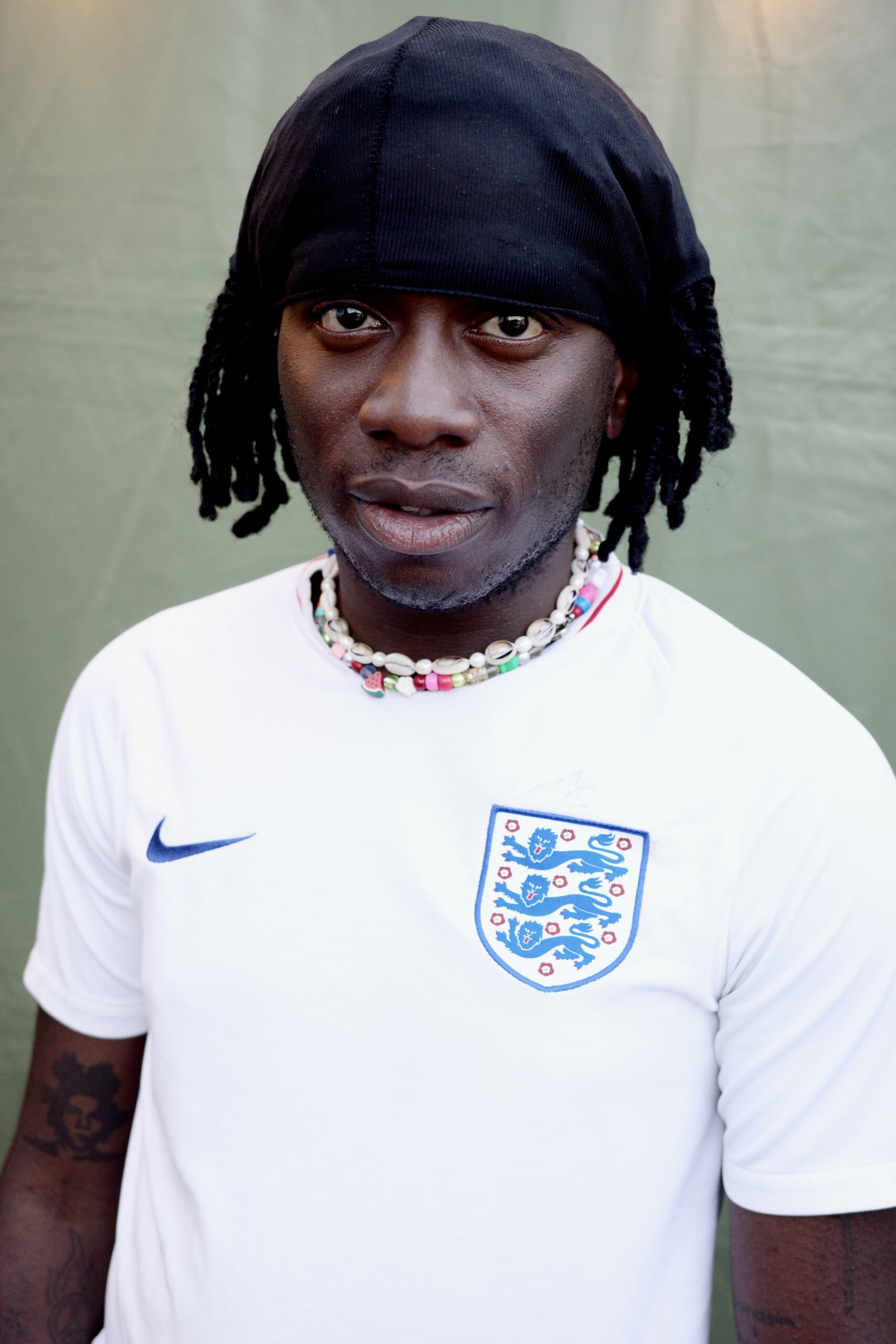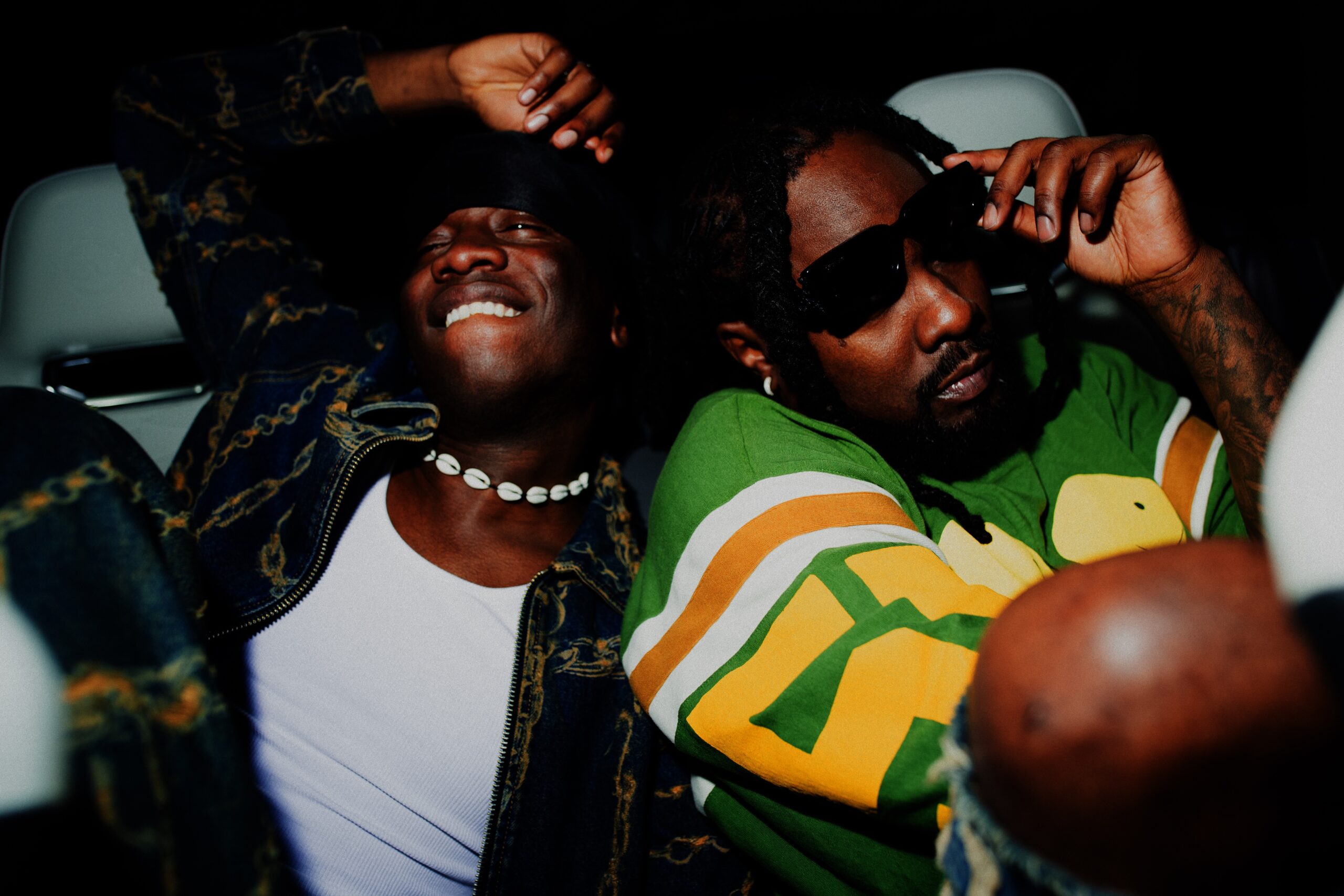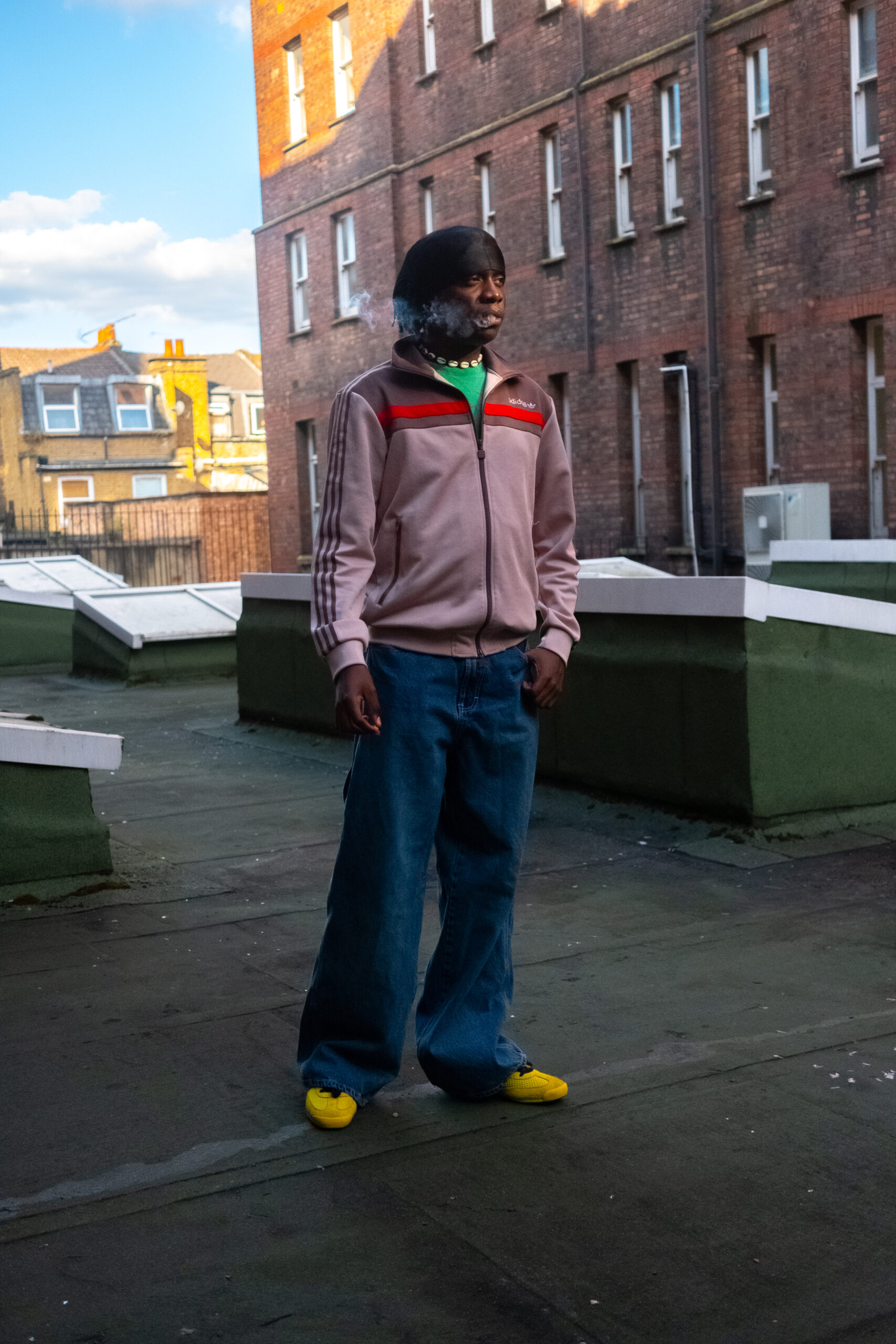In conversation with Master Peace at Lowlands

Fresh off the stage at Lowlands Festival, Master Peace delivers a performance that can only be described as “quite mental”. He sat down with us, to catch his breath (smokers will get this) after leading a crowd that simply couldn’t stop bouncing. Navigating Surrey’s posh neighbourhoods while maintaining his connection to the streets, Master Peace’s journey stands as a beacon of creative freedom. His style is unmistakable from his very first album, How To Make A Masterpiece, which serves as a gentle reminder that artistry knows no bounds. This album defies categorisation by blending elements of indie, punk, rock, and hip-hop. From his early days filled with house parties and raves to his current status as “the new voice of British indie,” Master Peace opens up about his influences, his creative process, and the importance of musical exploration. And if his most listened-to artists are any indication, Master Peace’s sound is as unpredictable as it is addictive.
First of all, congrats on the show. How did it go?
It was crazy. Everybody in the crowd was bouncing. It was quite mental. I didn’t think it was going to be that crazy, but it was wild. Up there with my favourite shows, for sure.
What made the show so special?
From the get-go, everybody was just ready to have a good time, which is really important for me. Because you never know how these things can go with festivals. I was really happy that people were engaged.
You’re often described as the new voice of British indie. But your debut album, How To Make A Masterpiece introduced a musical style that combines many genres, like indie, punk, rock, and much more. Can you share your thoughts on working as an artist that isn’t limited to one genre? How did you go about crafting your own musical identity?
I think it’s really important to just make music – whatever you want to make, put it out there to the world. When I create, I don’t go in thinking I want to make a specific type of song, but I always know exactly how it’s going to sound once I’ve finished. A lot of people limit themselves, but you never know what you can make until you try. In my own music, I’ve merged different components to create a Master Peace, incorporating elements of indie sleaze, pop, rap, and dance. I’m a bit of a music geek, I like to take inspiration from different places and blend them together. One day I could be listening to Arctic Monkeys, the next day, Skepta. It’s about exploring and combining various influences to craft something unique. Do you know what I’m saying?

Genre-wise, do you feel like you’re at home in one specific type of genre or do you just mix it all together?
I would probably say I’m very indie, but there’s nothing wrong with branching out, which I’m currently doing on my second album, that I’m making right now.
Born and raised in London, can you tell how your surroundings influenced your career?
I would say that I went to a quite posh school, so people liked indie music there.
In what way was it a posh school?
It was just, like… white-populated. Yeah, it was white. I’ll keep it real. But then again nothing wrong with that. I had a lot of friends who were from the hood and they listened to rap music but then I’d go to school and people would listen to indie music. For me, it was quite interesting to see how people listen to music differently, essentially. I feel like nobody in indie music really adds the rap element so I felt like if I was ever going to make music, I was going to merge the two.
How did you transition from attending a posh school to this new, merged environment?
I just feel like white people love indie music, period. They just love that shit. Then I had a lot of friends outside of school who made music or dabbled in music, a lot of them were in gang videos, so I always kind of had my ears to the streets.

Would you say you lean more towards hip-hop or indie?
I’ll be real with you, it depends on the day. Sometimes I wake up and I want to listen to indie and then some days I’ll just put on emotional rap. Both of them are good for different reasons.
Did you ever wonder how to make it work, or feel uncertain about it?
When I first made this album, I had this song called Might Be Fake, and the flow is very Dizzee Rascal, Boy In da Corner, but then the hook is dancey pop. I kept wondering, are people going to understand what I’ve done here? Because if you scrap the beat and the instrumental to listen to the verse on its own, you could put that on a grime beat and it would be rap. But I wanted to put a proper dance, pop, sleazy kind of beat, with the hook being very pop. Like the band Gorillaz, they will have a rapper on the tune when the song is an indie song. They’ll have a mad rapper or someone in that world, and then they will flip it on its head.
Listening to your concert and your album, it was a sort of unique combination of The Streets, The Kaiser Chiefs, The Smiths, and Mick Jagger, all coming together.
Yeah, because I’m just influenced by a lot of people. You see, artists will say: oh yeah, I listen to everything, but I actually listen to everything, from ambient to, dance, electronic, indie, and dubstep.
Who would be, then, the most influential or inspiring person in your life?
I’d probably say that I look up to the 1975. Matt Healy makes really good music, whether it’s pop, whether it’s dance, whether it’s indie, whether it’s rock, whether it’s punk, he can do it all. Whatever genre it is, the 1975 really delivers.
One more question you’re going on a world tour. What can we expect performance-wise?
Chaos. Same as today, just wildness. We’re finishing up the debut album that we’ve been promoting all year. It’s almost time to wrap it up and move on to new projects. I wanted to go out with a bang, so we’re doing Europe, the UK, and America. Even more chaos! Yeah, I need to work on my breathing, and I need to stop smoking. Normally I could hold a set longer than today but I smoke so I lose my breath very easily. Yeah, yeah, yeah. I’m going to try and stop smoking. I’m not saying I’m going to do it fully. It’s just going to be more energy.
Visually what is your performance going to look like?
It’s just going to be very brat, very dancey, indie… gay.
Gay, yeah! Can’t wait!
Interview by Rogier Vlaming and Jessica van Halteren
Words by Veronica Tlapanco Szabó
Notifications